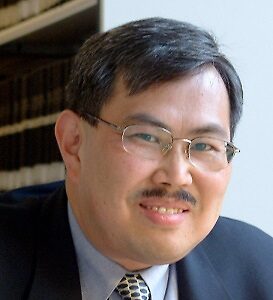Seminar: 'Activation of Dihydrogen and Carbon Dioxide Using Complexes of Electropositive Metals' by Prof. Jun Okuda

Date
Location
Description
Speaker:
Professor Jun Okuda
Institute of Inorganic Chemistry,
RWTH Aachen University
………………………………………………………
Date: Wednesday, February 8, 2017
Time: 10:30am – 11:30am
Venue: C210, Center Building
………………………………………………………
Title:
"Activation of Dihydrogen and Carbon Dioxide Using Complexes of Electropositive Metals"
Abstract:
In the post-petrochemical era, non-edible biomass could become a source of carbon for chemicals’ productions. Challenges associated with biomass conversion (e.g. C-O bond cleavage under mild conditions) persist. The ultimate carbon source would be carbon dioxide that requires enormous amount of energy to be converted into useful chemicals. Apart from direct hydrogenation to C1 compounds such as formic acid and methanol, CO2 needs to be efficiently (catalytically) reduced to Cn>1 molecules containing C-C bonds. Molecular compounds of earth-abundant metals may hold the key for reducing CO2. Dihydrogen will in the future be the best reductant and carbon-free energy carrier. From the fundamental standpoint of studying the reactivity of electropositive metal hydrides as reductants and possibly as hydrogen storage materials, new molecular hydrides of earth alkaline (Mg, Ca) and rare-earth metals will be presented. In the context of understanding the reductive transformation of CO2 into products with C-C bonds, new reactivity patterns involving a doubly reduced CO22- (“carbonite anion”) at a Lewis acidic metal center such as titanium will be discussed.
................................................................................................................................................................................................................................
Profile:
Professor Jun Okuda, born in Osaka/Japan in 1957, received his Dr. rer. nat. degree at the RWTH Aachen University in 1984 with G. E. Herberich and was a Postdoctoral Associate at MIT with R. R. Schrock (Nobel laureate 2005). After his habilitation at the Technical University Munich in 1991, he held academic positions at the State University of New York at Albany, the University of Marburg, and of University of Mainz, before assuming the Chair of Organometallic Chemistry at the RWTH Aachen University in 2003. From 2012 to 2014 he served as Chairman of the Department of Chemistry.
He received the Heinz-Maier-Leibnitz Award 1991 by the German Minister of Science and Education and was Fellow of the Japan Society for the Promotion of Science in 1996. Guest professorships include distinguished guest professor at the Chinese Academy of Sciences, Institute of Applied Chemistry, Changchun, China in 2010. He was Co-Chairman for the "14. International Symposium on Homogeneous Catalysis" in Munich in 2004” as well as a number of national meetings. From 2003 to 2010 he was board member of the Wöhler Inorganic Chemistry Division of the German Chemical Society (chairman from 2007-2010). In 2014 he became Fellow of the Royal Society of Chemistry.
From 1996 to 2003 he served as selection committee member of the Alexander von Humboldt foundation and from 2003 to 2008 he was an elected member of the committee “Molecular Chemistry” of the German Research Foundation (DFG). Since 2010 he is spokesperson for the DFG/JSPS funded International Research Training Group “Selectivity in Chemo- and Biocatalysis” with Osaka University, Japan. In 2013, he was elected a member of the North Rhine-Westphalian Academy of Sciences, Humanities and the Arts.
His research interests include organometallics as polymerization catalysts, artificial metalloenzymes, and energy storage systems. He has published more than 275 papers and holds 9 patents.
Subscribe to the OIST Calendar: Right-click to download, then open in your calendar application.



